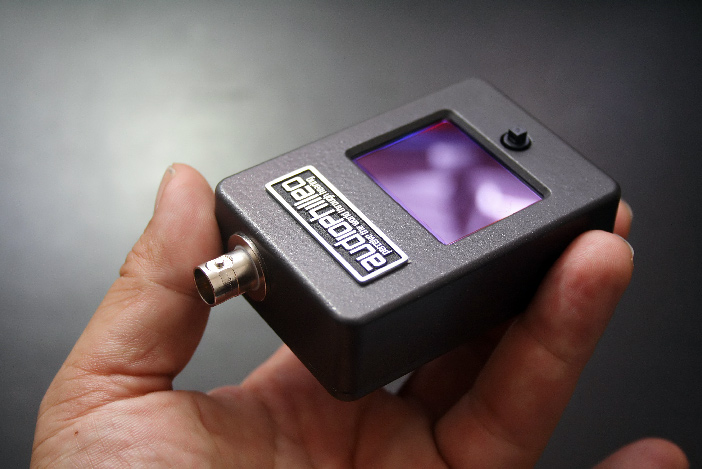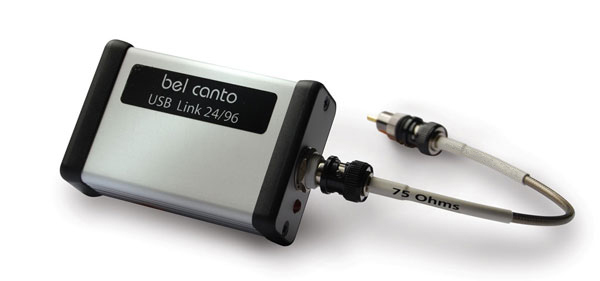There are basically two camps of conversion methods.
1) Adaptive isochronous USB - where the computer control the flow of data. Some say this method is jitter-prone and will give you nasty edginess. But from the results I see may suggest otherwise.
2) Asynchronous USB - where the DAC or converter itself controls the flow. Championed by M2Tech, Gordon Rankin of Wavelength audio (Ayre QB9 and Halide Bridge also license code from them) and DCS. It is generally accepted, at least technically, that this method is superior to the former.
Most new USB converter are good for 24/96 without drivers, while some can do 192khz with additional drivers.
I have yet to try any of the following but just to survey and compare. Positive-feedback recently compared some of them which is a very good read.
M2Tech Hiface EVO
US retail: $479
Mode: Asynchronous 24/96
Output: RCA SPDIF, Toslink, ST optical
Comments: The original Hiface ($150-$180) is probably the most popular one out there, and there are interesting modifications (Jkenny etc) mainly to its power supply. The EVO can be powered by an included wall wart or 9v battery. There's also an input for word clock - in case you have ultra precision DAC to use with.
US retail: $499 (standard)
Mode: Adaptive 24/96
Output: RCA and AES/EBU SPDIF, I2S
Comments: Automatically convert 16/44.1 to 24/44.1 and provide additional 8-bit of digital volume control which does not throw away music information. There are options to upgrade to superclock4 and ultraclock4 which should improve sound. I2S output included in case you have a DAC which has that input. I understand that they are coming out with the new Off-ramp 4 (asynchronous 24/192), so may be better to wait for that one.
US retail: $450
Mode: Asynchronous 24/96
Output: RCA or BNC SPDIF
Comments: The most minimalist of them all. The cable is included in the design. Takes 5v power off the USB port. Wavelength's asynchronous code used.
Bel Canto Link/Light Link 24/96
Mode: Adaptive 24/96
Output: RCA or BNC SPDIF
Comments: Includes a Sterevox cable (same designer as the Illuminati and Black Cat cables - good stuffs). The Light Link output ST glass optical (DAC3.5 has an input).

US retail: $349
Mode: Adaptive 24/96
Output: RCA SPDIF and I2S
Comments: The Korean-made black box, no drivers needed, takes power from USB port.
US retail: $399
Mode: Adaptive 24/96
Mode: Adaptive 24/96
Output: RCA or AES/EBU SPDIF
Comments: Small and minimalist design, plug-n-play and supposed to sound very good.
 |
| Photo credit: Japanese Music to go website |
US retail: $895
Mode: Asynchronous 24/192
Output: RCA or BNC SPDIF
Comments: Seems to be the one with the most features out there. Direct connect to DAC input (no cables), OLED Screen, Dithered digital volume control, Virtual cable, Jitter simulator, remote control. A no-screen version Audiophilleo 2 is also available without the bells and whistles at $495.
US retail: $1799
Mode: Asynchronous 24/192
Output: BNC SPDIF
Comments: Milled from solid aluminium, the Diverter is a work of art. But at $1799!
US retail: $900
Mode: Asynchronous 24/192
Output: Single BNC SPDIF
Comments: The industry leader, and claim to eliminate jitters with its internal phase lock loop. Wavelength's asynchronous code is used in the company's own DAC and Ayre Acoustic's well reviewed QB9.







